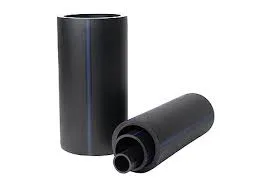Aug . 13, 2024 17:08 Back to list
Exploring the Benefits and Applications of PVC-M Pipe in Modern Construction and Infrastructure Projects
Understanding PVC-M Pipes A Versatile Solution for Modern Infrastructure
Polyvinyl Chloride Modified (PVC-M) pipes have emerged as a preferred choice in the construction and infrastructure sectors due to their enhanced performance characteristics and versatility. These pipes are a type of modified PVC specifically designed to withstand more challenging conditions compared to traditional PVC pipes. As urbanization continues to rise globally, the demand for durable, efficient, and cost-effective piping solutions like PVC-M is on the rise.
What Are PVC-M Pipes?
PVC-M pipes are made from polyvinyl chloride that has been modified to improve its mechanical properties. The modification process enhances the impact resistance, tensile strength, and flexibility of the pipes, making them suitable for a variety of applications, including water supply, sewage systems, stormwater drainage, and industrial purposes. The unique formulation of PVC-M allows it to perform well in both high and low-temperature environments, making it a reliable choice for various climatic conditions.
Benefits of PVC-M Pipes
1. Durability One of the standout features of PVC-M pipes is their remarkable durability. They can resist corrosion and are not prone to rust, which is a significant advantage over metal pipes. Additionally, their resistance to chemical exposure extends their lifespan, reducing the frequency and cost of replacements.
2. Lightweight Compared to traditional materials such as concrete or steel, PVC-M pipes are considerably lighter. This lightweight nature makes them easier to handle and install, reducing labor costs and the need for heavy machinery during installation.
3. Flexibility The improved flexibility of PVC-M pipes means they can be bent and adapted to various environments without breaking. This characteristic is particularly useful in areas with difficult soil conditions and for complex pipe layouts.
pvc-m pipe

4. Cost-Effectiveness While the initial cost of PVC-M pipes may be slightly higher than traditional PVC, their long-term benefits far outweigh these costs. Their durability and low maintenance requirements can lead to significant cost savings over the life of the pipe system.
5. Environmentally Friendly PVC-M pipes are recyclable, and their production process emits fewer greenhouse gases compared to other materials. As sustainability becomes a growing concern for many businesses and municipalities, the choice of PVC-M aligns with eco-friendly practices.
Applications of PVC-M Pipes
PVC-M pipes find application in numerous sectors due to their versatility. One of the most common uses is in water supply systems, where they are employed for both potable water and irrigation. Their ability to withstand pressure makes them ideal for water distribution networks.
Additionally, PVC-M pipes are widely used in sewer and drainage systems. Their resistance to chemicals and corrosion ensures that they remain functional even when transporting corrosive substances. Industries such as construction, agriculture, and mining also benefit from the use of PVC-M pipes for various fluid transportation needs.
Conclusion
In conclusion, PVC-M pipes represent a significant advancement in piping technology. Their excellent physical properties, coupled with their economic and environmental benefits, make them an ideal choice for modern infrastructure needs. As we continue to develop and enhance our urban environments, the adoption of PVC-M pipes will likely play a critical role in ensuring that our piping systems are not only efficient and functional but also sustainable. Choosing PVC-M is not just an investment in materials but a step towards building a resilient and future-ready infrastructure.
-
PVC Grey Sheet for Extraction: Chemical Resistant & Durable
NewsAug.19,2025
-
Durable PVC Pipe Fittings for Plumbing & Irrigation Needs
NewsAug.18,2025
-
HDPE Steel Belt Reinforced Spiral Corrugated Pipe | High Strength
NewsAug.17,2025
-
HDPE Pipe Fittings: Durable, Leak-Proof Solutions
NewsAug.16,2025
-
Premium CPVC Sheet: High-Temp & Chemical Resistant Solutions
NewsAug.15,2025
-
Durable PPR Pipe for Hot & Cold Water Systems - Easy Install
NewsAug.14,2025

